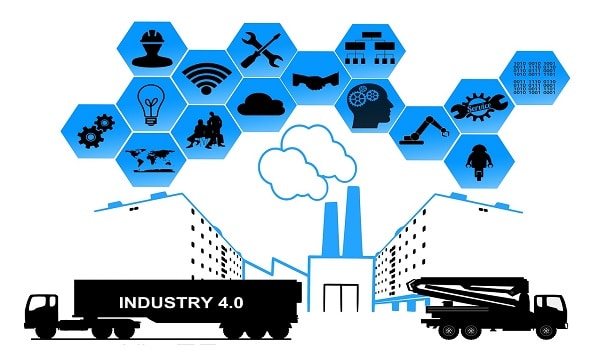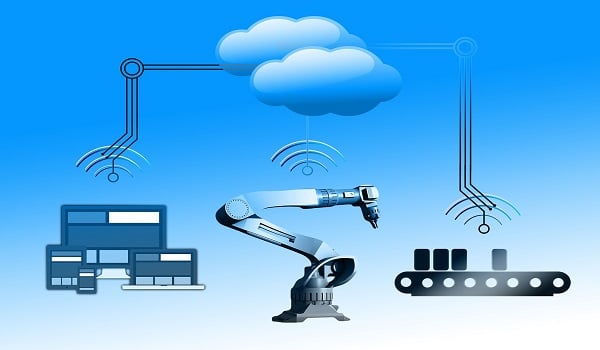How to transform your traditional workshop into an ultra-high-performance production environment? Production workshop management is experiencing an unprecedented revolution today thanks to digital technologies. This transformation addresses crucial challenges: improving productivity, reducing errors, optimizing costs, and ensuring regulatory compliance. Production workshop management encompasses all planning, coordination, and control activities of productive resources. It aims to maximize operational efficiency while maintaining required quality. The digital era offers innovative solutions like Picomto, which revolutionize how industrial companies manage their production workshops.

Key takeaways regarding production workshop management :
- Essential digitalization: Digital technologies are radically transforming industrial production processes
- Optimized efficiency: Digital solutions reduce unplanned downtime by up to 30%
- Enhanced compliance: Digital traceability ensures compliance with strict industrial standards
- Measurable ROI: Digital investment generates significant short-term financial returns
- Competitive advantage: Digital transformation differentiates companies in their market
1. Production Workshop Management: What are the main challenges?
Modern production workshop management faces complex and interconnected challenges. Today’s industrial environment demands perfect coordination between human resources, equipment, and processes. Workshop managers must navigate between operational constraints, quality requirements, and increasing economic pressures.
1.1. How to effectively manage production flows?
Flow management represents the backbone of any high-performing workshop. It requires:
- Precise planning of production sequences
- Synchronization of workstations
- Optimization of cycle times
- Reduction of bottlenecks
Consequently, digital tools facilitate this real-time coordination.
1.2. What are the difficulties related to procedure standardization?
Standardization remains a major challenge for maintaining consistent quality:
- Human variability in task execution
- Paper documentation becomes obsolete quickly
- Inadequate training of new operators
- Insufficient quality control of processes
Nevertheless, digitalization offers concrete solutions to overcome these obstacles.
1.3. How to ensure smooth communication between teams?
Poor communication generates significant losses:
- Incomplete information transmission between teams
- Difficult multi-site coordination
- Late feedback on anomalies
- Time-consuming manual reporting
2. Production Workshop Management: What are the best practices for optimization?
Optimizing production workshop management relies on proven methods and innovative technologies.
These practices aim for continuous improvement of operational performance. They include strategic planning, use of high-performance tools, and adoption of modern manufacturing philosophies.
2.1. How to implement effective planning?
Effective planning constitutes the foundation of a high-performing workshop:
- Analysis of actual production capacities
- Accurate forecasting of customer demand
- Optimal allocation of available resources
- Anticipation of preventive maintenance needs
Thus, rigorous planning avoids costly production disruptions.
2.2. What tools to use for improving production monitoring?
Modern tools revolutionize production monitoring:
- Interactive real-time dashboards
- Automated and customizable KPI indicators
- Preventive alerts on deviations
- Complete traceability of operations
2.3. How to integrate lean manufacturing into your workshop?
Lean manufacturing optimizes production processes:
- Elimination of identified waste
- Continuous improvement of methods
- Empowerment of operational teams
- Standardization of best practices
Indeed, this approach generates sustainable productivity gains.
3. Production Workshop Management: Why is digitalization crucial?
Digitalization fundamentally transforms modern production workshop management. It responds to growing requirements for performance, flexibility, and traceability.
Digital technologies enable a data-driven approach to operational decisions while improving the user experience for operators.

3.1. What are the advantages of digital work instructions?
Digital instructions revolutionize task execution:
- Instant accessibility on all devices
- Automatic and synchronized updates
- Interactivity with videos and animations
- Traceability of completed actions
However, their effectiveness depends on adoption by end users.
3.2. How does real-time data collection optimize production?
Real-time data transforms decision-making:
- Continuous performance monitoring
- Early anomaly detection
- Automatic parameter optimization
- Equipment failure prediction
Furthermore, this preventive approach significantly reduces costs.
3.3. What is the impact of augmented reality on training and maintenance?
Augmented reality revolutionizes operational support:
- Immersive and interactive training
- Real-time assistance
- Reduction of handling errors
- Accelerated skills transfer
4. Production Workshop Management: How does Picomto revolutionize this management?
Picomto represents a complete solution for digital transformation of production workshops.
This platform integrates all tools necessary for optimized management: instruction creation, quality monitoring, digital training, and remote maintenance. It adapts to the specificities of each industry while ensuring rapid and efficient implementation.
4.1. What functionalities does Picomto offer for instruction creation and sharing?
Picomto simplifies the creation of high-performance instructions:
- Advanced intuitive multimedia editor
- Centralized resource library
- Real-time collaboration between teams
- Automatic distribution across all devices
However, customization remains essential for each context.
4.2. How does Picomto improve quality and compliance in the workshop?
The solution guarantees operational excellence:
- Quality controls integrated into procedures
- Complete and automatic audit trail
- Assured regulatory compliance
- Data-based continuous improvement
4.3. What are the advantages of remote maintenance with Picomto Remote Expert?
Remote Expert revolutionizes technical assistance:
- Expert remote intervention
- Reduction of costly travel
- Rapid problem resolution
- Know-how capitalization
Consequently, resolution times decrease drastically.
5. Production Workshop Management: Which industrial sectors benefit most from digitalization?
Digitalization of production workshop management benefits all industrial sectors, but certain domains present specific challenges.
Highly regulated industries, complex environments, and critical processes derive maximum benefit from digital solutions. Picomto adapts to the particular requirements of each industrial sector.
5.1. How does Picomto respond to the specific needs of the pharmaceutical industry?
The pharmaceutical sector demands exceptional rigor:
- Validation of all critical processes
- Exhaustive traceability of operations
- FDA and other regulatory compliance
- Deviation and CAPA management
5.2. What advantages for energy and aerospace sectors?
These critical sectors require absolute reliability:
- Enhanced intervention safety
- Compliance with strict standards
- Advanced predictive maintenance
- Continuous technician training
5.3. How does the solution adapt to chemical and cosmetic industries?
These industries combine complexity and quality requirements:
- Management of complex formulations
- Strict contamination control
- Batch process optimization
- Exhaustive lot documentation
6. Production Workshop Management: How to implement a digital solution?
Implementing a digital solution for production workshop management requires a methodical and progressive approach.
This transformation involves several critical phases: needs analysis, deployment planning, team training, and results measurement. Success largely depends on change management and user adoption.
6.1. What are the key steps for a successful transition to digital?
Digital transition follows a structured process:
- Complete audit of existing processes
- Definition of priority objectives
- Progressive deployment planning
- Organizational change management
However, each company requires a personalized approach.
6.2. How to train your teams in using Picomto?
Training ensures user adoption:
- Interactive and practical training
- Personalized support during deployment
- Complete and accessible documentation
- Active user community
Consequently, training investment determines project success.
Conclusion
Digitalization of production workshop management is no longer an option but a strategic necessity.
It enables optimization of operational efficiency, quality improvement, and regulatory compliance assurance. Picomto offers a complete solution that supports this digital transformation with measurable results from the first months. Companies that adopt these technologies gain a decisive competitive advantage in their market.
FAQ
What is a production workshop?
Industrial space where raw material transformation operations into finished products are performed.
What are the 4 parts of production management?
Planning, organizing, directing, and controlling productive activities of the industrial company.
What are the stages of production management?
Forecasting, planning, programming, launching, monitoring, and controlling production operations.
What are the objectives of workshop management?
Optimize productivity, quality, costs, deadlines, and customer satisfaction in the workshop.
What are the 4 types of production?
Unit production, batch production, series production, and continuous production according to volumes.
How to manage a workshop?
Plan, organize, coordinate, control, and continuously improve production processes.






Leave A Comment